The Ministry of Defence (MOD) has publicised its intention to procure parachute packing, maintenance, and inventory management services in support of the MOD’s parachuting programme.
The tender notice, published on 20 Oct 2023, details a contract of an estimated value between £24M to £28M, expected to last for a period of 4.5 years.
The notice stated, ‘The UK MOD has a requirement for the provision of a parachute packing, maintenance and inventory management service, based in the UK, in support of the MOD’s parachuting programme which conducts an estimated 15,000-25,000 parachute descents per annum.’
The contract could be extended up to two additional years, based on MOD discretion.
The services will encompass various parachute types including precision, low-level, mass insertion, and cargo parachutes. The supported equipment includes, but is not limited to, ‘parachute release assemblies, carrying straps and life preservers (‘Parachute Equipment’)’ and any new parachute systems that may be integrated into the UK MOD service during the contract’s tenure.
Key service requirements highlighted in the tender include:
- Quick turnaround for packing and re-packing of parachute equipment, including necessary cleaning as per the Authority’s guidelines.
- Maintenance, repair, modifications, and inspections of the parachute equipment at a UK-based facility.
- An out-of-hours contact for urgent queries.
- Transportation of equipment to RAF Brize Norton and other UK locations.
- A dedicated, climate-controlled storage facility for up to 20,000 parachute items.
- Effective data management on equipment status and inventory management.
- Safe disposal procedures for old parachute equipment.
- Training for MOD personnel in parachute equipment packing and maintenance.
Interested parties have until 20 Nov 2023, 16:00 GMT to submit their tender responses.


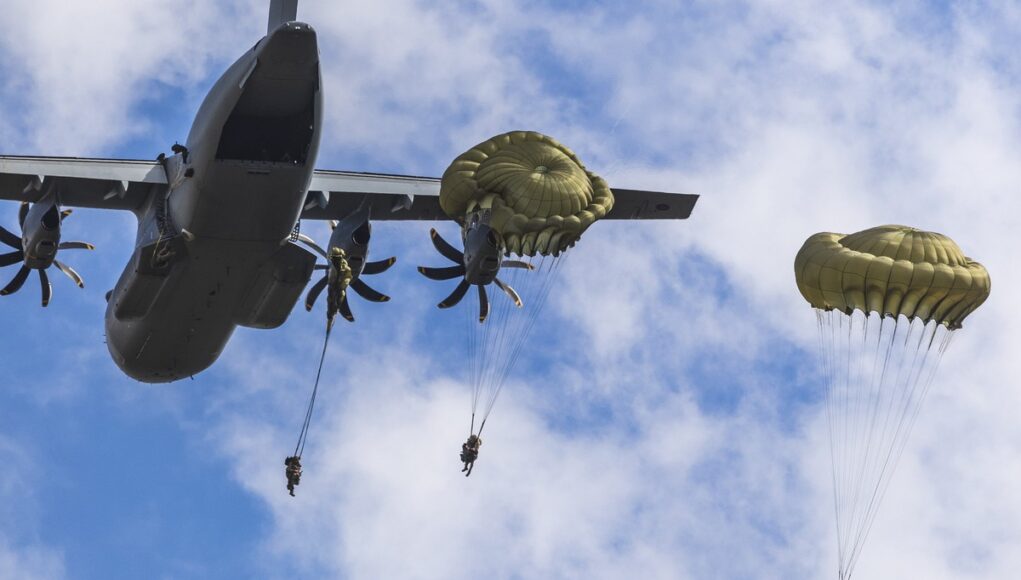
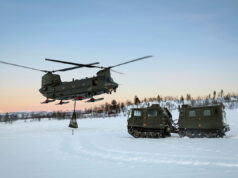




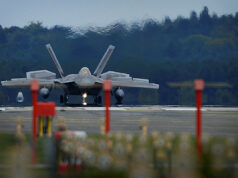
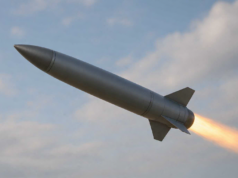


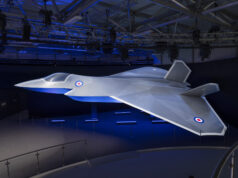

Before you know it Airborne will be needing someone to pack his Bergan for him…
Airborne Forces have NEVER packed their own chutes….so, no they don’t need a smart arse comment on packing a Bergen!
Airborne’s sound. He can take a bit of banter, and doesn’t need a silly little fanboy fighting his battles for him.
Read the post again.
Maybe take your own advice and try reading?
It’s a bit of banter aimed at a user on this website.It’s also got exactly nothing to do with you. Wind your neck in, maybe learn the atmosphere of the place before telling people to shut up with your three posts.
👍
Agreed and so nice you lads are bun fighting over my little self 😂! But I did not realise that packing chutes had become a private sector job, with a 10% work force of less able people to include the blind! As for my Bergan, I think I mentioned before, once commissioned I did have a man for that, and he always ensured the smoking jacket went in last to reduce creases…….😂👍! Ah I love the crazy, knowledgeable and generally misfit types we get on here, I seem to fit in nicely 😎👍
Hello Chris, thanks for the support but Dern is ripping it out of me, as he is probably drunk after 2 shandies, which is acceptable, after being in the RLC bath and laundry unit for a year or so…..but he is on the ball and it’s just banter! 👍
OOOFFF I’m wounded that you think I’m RLC, do I come across as THAT remfy? 😂😂😂One day I’ll have to let you know what my actual cap bade is and then you’ll have a field day.
Never REMFY mate, just ripping it out of you! Me, jumping with my typewriter, photocopier and all clerks desk and chairs was tough….😂😂😂! I’m fibbing…..but don’t tell you are RAF Reg? If you are it’s ok, my son in law is as well, but we don’t hold that against him….(only at family get togethers) 😂👍
Bloody hell where’s the RAF when you need them? Is this now a private sector job? As for my Bergan Dern me old China, once commissioned I had a man for that……..😂👍
Hate to break it to you old chum, but Batmen are no longer issued.
Ah that’s why my smoking jacket was such a friggin mess!!!!!
Oh and it was a LE commission so not real in some DE eyes 😂
I wonder if any of these outsourcing activities have actually proven to have been cheaper and more efficient that doing it in-house?
I note they always get renewed, even the recruiting piece with Capita.
It’s not inherently cheaper to outsource. Reasons for doing it include not wanting to incur the capital outlay of modernising an in-house capability, and outsourcing business risk. Somehow MOD manages to keep negotiating contracts where the financial risk remains ‘in house’ though.
Another ‘advantage’ is that it takes service personnel off the books and saves capitation costs ie allowing defence manpower cuts. I doubt the non-financial ie operational benefits of keeping those military personnel are ever considered.
Good point about MoD invariably keeping the financial risk – crazy.
Of course it’s cheaper! On pure staffing costs alone you don’t need to recruit, train, house, feed, care for or manage the staff involved. Nor do you need to provide, procure, maintain the equipment and buildings used, and finally the inventory is on the contractors inventory and not yours!
I hope this does not mean the end of PES and SFPSS.
This privatisation seems endless.
Why not outsource the Paras, or Typhoon pilots, or tankies? By gum, let’s have a whole army and air force outsourced! Of course, the Russians already do this, so they can give us a few pointers on the pro’s and con’s…
I know, I hate it.
So the UK does not/has not had any parachute packing or maintenance capabilities, considering the Parachute Regiment was formed in 1942?
Or… the UK does have these abilities, but someone has decided that it should be privatised?
I’m confused…
Already privatised. I believe IrvinGQ produce and pack the parachutes. I assume the contract is due for renewal and has to be advertised due to public procurement rules etc.
It does have them.
Airborne Delivery Wing at Brize has PES amongst its Sqns, Parachute Engineering Sqn.
And the SF have their own element, which I briefly mentioned above, which does other stuff too.
Assume there is already a civilian, MoD CS element to both but all in-house as far as I know.
The entire capability was privatised in the 1990’s.
Parachute for sale.
Used once.
Never opened
Nice one!
Bit of dit for you.
On my second static line jump, I used both of my chutes, as in the main and emergency. Stupidly, as I let go of the grab rail, I’d closed my eyes. Which meant one of my arms didn’t match the other, which induced a spin. After much kicking of the legs, the lines were still twisted and the main chute had only half erected. So the emergency was pulled. After landing, having the shakes and nearly becoming a gibbering wreck. The instructors put another pack on my back and led me to the Cessna aircraft. It was a massive effort to get out of the cabin and stand on the platform, then release the grab rail. This time I did it right! Since that jump some 20 years ago, I think I’ve done over 500 jumps, but mostly free-fall and from a much higher altitude and in that time learned how to pack my own chutes.
Mate when I was in Bragg for a while, we had an AA 82 lad remove his bicep in a lovely square cut away portion from the T10 static line as it went under his arm on exit and subsequently over his bicep on exit! For those not in the know, the Brits are trained to release static line and close the hands over the reserve, the yanks release static line and open arms to push away! Thus ensures a lot of static line injuries we never see in UK Airborne! But as an aside mate I think I got to about my 7th jump before I opened my eyes to actually see wtf was going on……😂👍
I started jumping when I was 16 as part of a sponsored jump for a lass at college who had Leukaemia. This was from a jump school at a little airfield in North Cornwall, which was fairly close to the coast. So had awesome views from 1500ft. The aircraft was a diddy little Cessna 180 I think. Where you could get about 5 people in the back. On the port side of the aircraft, there was a platform over the wheel, which you put you foot on and a cross bar that you held onto. When the instructor said go, you let go of the cross bar and fell back and down, initially in the free fall position, screaming out 1000, 2000, 3000, check canopy! Hence why the arm was out of position causing the spin. As a full on weirdo, I actually enjoyed jumping and signed up for more. Though at this stage they were all with steerable round canopies and 1 to 5 second static lines. By the time I left college had done around 30 jumps, it wasn’t cheap, especially for a college brat.
After signing-up, initially didn’t do any jumps. Though started again after two years. But had to “requalify” through Weston-on-the-Green. Starting with the school at Brize, then balloon jump, followed by the Skyvan at Weston. I don’t know why, but jumping through the floor hatch in the balloon, was far worse, than releasing the white knuckles on the Cessna.
I must admit, went a bit wild in my 20’s with parachuting, being free fall qualified, doing both night jumps and extreme weather jumps, though no base jumping. Mostly did HALO/HAHO later on including the squirrel suit. Have a mate who survived a double canopy failure, when we were jumping in the States. He luckily had just enough canvas to slow him down just enough. Though smashed his legs and pelvis, having to relearn how to walk after being in traction for 6 months. It was one of the worse things to witness from the ground, knowing you couldn’t do anything to help! I know what you mean about the American method, as we noticed how many of them had twisted lines after jumping. But also noticed that they also had significantly more landing injuries that we did.
You must have started jumping well before me mate as there was no hatch in the balloon for me, just a gate exit with a small bar across to prevent small accidents 😂! As for HALO etc, loved it, when in SA with 44 lots and lots of free fall and no AAD safety net lol had to pay attention to height above AGL 😂😂still pop over to Spain on occasion when work and Mrs Airborne allows just to get a weeks jumping (and the odd drink) 🥃😂👍
The yanks lower their kit just prior to landing mate, as opposed to us who lower it once we know we have a safe canopy, which ensures if they have any issues they have less time to sort it out! Bloody yanks, everyone seems to dislike them but I loved my time at Bragg, great people and so polite! And Fayetaville, great town, not known as Fayetanam for nothing lol! And I now see that Fort Bragg is called Fort Liberty WTF as the previous name was from a confederate general! BLM have changed and eradicated history though fear!!!!!
Hi mate, been to Bragg a few times, didn’t know it’s changed its name. My lasting impression of it was the sheer size, the place is huge. If I remember correctly it’s the size of Wales, which includes the training areas and the various camps like the Airborne, Rangers etc. Plus it’s very own town. I suppose a bit like SPTA with Warminster but a lot bigger and with a Hooters!
A long while back now, we did a month long exercise in South Africa. Starting in the far North, then in Namibia and finishing in Cape Town. Still think it was the best tour ever. It’s not everyday you have a Cape Buffalo BBQ. Did quite a few work jumps. But managed to do a jump from Table Mountain (pre squirrel suit).
There’s nothing like waddling like a penguin to the ramp, encompassed in a dry suit, carrying your chutes, webbing, a pair of Osprey plates, Bergen on your chest quick release plus your weapon. Oh and on oxygen, staring out in to the inky blackness over the ocean. Hoping that the GPS coordinates are correct and the ship is in the right place, with a RIB ready to pick you out of the sea!
Great dit mate, me loved SA, was at Bloemfontein with 44 for quite a while on exchange! Even did the Comrades marathon while there, great times, great country but getting less and less safe!
Apologies for digression. Appearing in today’s Times
Germany may abandon €100bn fighter jet project with France
Berlin could also lift veto on delivering Eurofighter Typhoons to Saudi Arabia as it considers deal with Britain
Germany is considering abandoning its flagship €100 billion future combat jet project with France and joining a rival programme with Britain instead, The Times has been told.
As an overture to a potential deal, the German chancellor is also understood to be in talks over lifting Berlin’s veto on a delivery of Eurofighter Typhoon jets to Saudi Arabia, which the UK views as an important strategic priority.
A pact along these lines would be a significant coup for London and reflect a steadily worsening rift between France and Germany, which are at odds over issues from energy and air defence to diplomatic protocol.
The jet fighter question leaves Olaf Scholz with a series of difficult choices that will shape his country’s alignment in Europe and beyond.
The first is whether to stick with the Future Combat Air System (FCAS), a blockbuster Franco-German-Spanish programme to develop and build the next generation of air power, billed by some analysts as the most important defence project in Europe.
The central idea is to digitally interlace a new brand of stealth fighter with drones, automated swarms of mini-fighter jets, older combat aircraft and even naval or ground-based assets through a single high-tech platform.
Berlin alone has already earmarked €40 billion of investment for FCAS and it is supposed to come on to the market by 2040. However, the scheme has been mired in delays and disputes over design and financing.
Sources familiar with Scholz’s thinking say he is worried that the project is at risk of turning into an extravagantly expensive white elephant and falling behind its competitors. The US air force and navy each expect to field their own new varieties of sixth-generation jet by 2030.
In the UK, BAE Systems and Rolls Royce are leading the development of a stealth fighter known as the Tempest, which is scheduled to be ready by 2035 and will form the backbone of a broader British-Italian-Japanese aerospace alliance.
One senior German official said Scholz saw no point in FCAS competing with Tempest and wanted either to merge the two or, failing that, to jettison FCAS and join Tempest. The chancellor is also said to be exasperated by the preferential treatment France has given its own aerospace companies in the initial stages of the FCAS project.
The ill feeling is exacerbated by a wider souring of relations between France and Germany on a number of different policy fronts.
Paris has, for example, snubbed Scholz’s “Sky Shield” initiative to bundle together European countries’ air and missile defence procurement, because it regards Germany’s preference for “off the shelf” systems from countries such as the US and Israel as an affront to its own research and development in this domain.
“When France says European defence policy, it means French industrial interests,” a senior source in Germany’s ruling coalition said. “Scholz feels he has far more in common with the British than with the French on these issues.”
However, the source added that Scholz was peeved that Rishi Sunak had yet to visit him in Berlin and wanted to see significantly more direct engagement from figures at the top of the British government over strategic questions if a closer UK-German partnership is to become a reality.
1of2 .British officials note that Sunak appeared at the Munich security conference in February and has held five phone calls and four face-to-face meetings with Scholz on the sidelines of various international summits this year.
The next-generation combat aircraft decision is closely linked to a British-German wrangle over a delivery of 48 Eurofighter Typhoon jets to Saudi Arabia, in a package potentially worth more than £5 billion.
The jet aircraft are jointly manufactured by Britain, Germany, Spain and Italy, which means Berlin has the ability to block their export. It has done so up to now on the grounds that a Saudi-led coalition has been blamed for killing thousands of civilians in the Yemeni civil war.
In September this newspaper reported that Sunak and James Cleverly, the British foreign secretary, were at the heart of a concerted lobbying campaign to try to shift Germany’s position.
The UK regards Saudi Arabia as a valuable partner in efforts to stabilise the Middle East and hopes the sale will safeguard thousands of jobs at the BAE Systems factories that manufacture Eurofighter components and assemble the jets. The matter is expected to come to a head in the next few weeks, after Saudi Arabia heaped pressure on the UK and Germany by inviting France to set out a rival offer to deliver its own Dassault Rafale fighter aircraft.
Sources across Scholz’s three-party coalition say they are now increasingly confident that the Eurofighter sale will be unblocked in the near future. This is partly because the chancellor worries that prospective partners will shy away from entering multinational defence projects with Germany in future if it is seen to be single-handedly thwarting exports.
Berlin is also conscious that the jet’s manufacturers, including Airbus in Germany, need the extra orders to protect jobs and keep their industrial capacity ticking over. A fortnight ago Guillaume Faury, Airbus’s chief executive, took the unusual step of explicitly criticising the German government for blocking the Eurofighter deal, describing its restrictive approach to arms exports as a “serious problem” and “very negative”.
Faury also argued that it raised questions about whether allies could treat Germany as a “trustworthy partner”. However, there are two factors complicating the decision for Scholz. The first is that there is still some opposition to the deal within his coalition, primarily from sections of the Green Party but also from a number of MPs in the chancellor’s own Social Democratic Party.
One MP in the coalition said that leading figures on the Green party’s Realo [pragmatist] wing such as Robert Habeck, the vice-chancellor and business minister responsible for arms export controls, wanted to lift the veto. However, other influential Green politicians continue to argue that sending arms to Saudi Arabia is not only immoral but dangerous, because those weapons could one day be used against the West’s interests.
The second problem is the Israel-Hamas conflict. Germany has positioned itself squarely on Israel’s side and sources say the government would prefer to wait and see how Saudi Arabia positions itself before Berlin takes any decision on weapons deliveries.
Analysis
The relationship between Britain, France and Germany, western Europe’s three foremost military powers, is coming to resemble one of the unfortunate love triangles from nouvelle vague cinema (Oliver Moody writes).
Paris and Berlin, like a wearily long-married couple, have gone from renewing their vows and embarking on expensive joint projects to ritualised bickering and mutual backbiting.
Once French presidents and German chancellors used to hold hands in public and help each other out in domestic elections. Now they squabble over everything from nuclear reactors and missile defence to the choreography of China trips and shared cabinet meetings.
Notionally the pair are committed to working together on two swishy advanced weapons projects — the Main Ground Combat System (MGCS) tank and the Future Combat Air System (FCAS) jet — that are meant to provide the backbone of the continent’s future armed forces.
But Germany’s eye is straying as the chancellery becomes increasingly exasperated with what it sees as France’s inordinately jealous coddling of its own defence industry.
First Berlin hinted a few weeks ago that it was thinking about upping sticks and developing a next-generation tank with Italy, Spain and Sweden instead. Now it is signalling that it could join Britain, Italy and Japan’s fighter jet programme too.
Allies of Olaf Scholz, the German chancellor, say he regards the UK as a more straightforward partner on this issue than France, but also feels slighted and frustrated by the lack of high-level engagement from London — and in particular by Rishi Sunak’s failure to visit him in Berlin.
Ultimately, though, the strongest driving force here is not so much amour-propre or schadenfreude as the logic of industrial consolidation. Germany is understood to see little point in European states pouring tens of billions into competing marquee defence projects when they could more efficiently join forces instead
Yea! Japan, Germany, Italy…. The band is getting back together.
Bet you did Nazi this coming. 🤣🤣🤣
Reverting back to the mean 🤣. Its interesting how the politics plays out . I think it was the Times article that said France is better off alone as their planes with tech are 100 percent French which is an exporting game changer for nations to avoid arms embargoes and sanctions.
Someone on twitter suggested the costs for tempest are way underestimated so maybe Germany on board a good idea . Who ever joins the project will have to buy the planes . So Germany uk Japan Italy thats gotta be a good 400 plus minimum build order . Too many partners the project will lose focus though
Would you trust a parachute packed by a firm that gave the lowest bid or took the money but skimped on quality control?